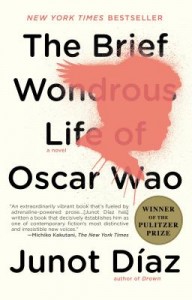 Recently, I attended a Friday-night discussion about African immigration to Israel with a group of young Jews. We sat on the floor at a Brooklyn synagogue and ate from paper plates of rice and chickpeas. Before we attended to Israeli officials’ statements about foreign workers and naturalization, the facilitators broke the ice by asking everyone in the circle to tell when, and from where, their family had arrived in America. The answers came readily: Lithuania, Poland, Austria-Hungary. Russia. Yemen, Israel, Iran. 1890, 1933, 1945, 1990. Along with their family stats, the young men and women in the group—no one much over the age of thirty—conveyed invisible scenes of poring over black-and-white photo albums after a funeral or interviewing a grandparent for a school assignment. It struck me, as my turn came (Poland, outside of Warsaw; 1905) that the question made us proud, but also vulnerable. Proud because our families had made the journey to America from somewhere else; and vulnerable because, as mostly second- and third-generation Americans, we weren’t sure whether that story was still ours to tell. Or what other stories could follow it.
Recently, I attended a Friday-night discussion about African immigration to Israel with a group of young Jews. We sat on the floor at a Brooklyn synagogue and ate from paper plates of rice and chickpeas. Before we attended to Israeli officials’ statements about foreign workers and naturalization, the facilitators broke the ice by asking everyone in the circle to tell when, and from where, their family had arrived in America. The answers came readily: Lithuania, Poland, Austria-Hungary. Russia. Yemen, Israel, Iran. 1890, 1933, 1945, 1990. Along with their family stats, the young men and women in the group—no one much over the age of thirty—conveyed invisible scenes of poring over black-and-white photo albums after a funeral or interviewing a grandparent for a school assignment. It struck me, as my turn came (Poland, outside of Warsaw; 1905) that the question made us proud, but also vulnerable. Proud because our families had made the journey to America from somewhere else; and vulnerable because, as mostly second- and third-generation Americans, we weren’t sure whether that story was still ours to tell. Or what other stories could follow it.
South African-Canadian author Kenneth Bonert’s first novel, The Lion Seeker, which was released by Houghton Mifflin Harcourt in October, tells a Jewish immigration story that never touches America, but nonetheless takes in hand this vulnerability and other difficulties in the literature and public narratives of immigration. He tells a story that belongs to his family—his ancestors came from Dusat, the Lithuanian village his characters leave to settle in South Africa. As descendants of people who made these journeys, it seems to me, we’re experiencing a long cultural moment where we want to learn and remember their stories—but in a way that doesn’t lionize. One sweeping version of Jewish migration is part of an aggressive, crowd-sourced Diaspora story: from der haym (the Yiddish-speaking “old country”) to the land of immigration, and eventually (if Zionism has its way) to the Holy Land. This narrative can be seen in so many tiny Israeli museums dedicated to “the story of the Jewish people” (as though there were only one of those). But Bonert’s generation of Jews, my generation—we’re not interested in this automatic narrative. We want to hear—and create—fiction instead of propaganda; art that gives us the chance to experience that crossing that, as the rabbi in the opening scene of Angels in America reminds us, “[we] can never make,” but that yet, is in us. For this to happen, we need strong narrative voices that draw us inward.
In America, Henry Roth holds that golden ticket. Call It Sleep, Roth’s 1934 novel of Jewish immigration and assimilation in America, has become an icon of Jewish-American literature and immigrant literature more broadly. With sensitive, imaginative eight-year-old David Schearl—Roth’s alter-ego—at its center, the novel builds a rich narrative interiority that recalls Joyce and Faulkner. When his mother sends him out to play in the hallway of their Brownsville tenement, for example, David falls headlong into his own world: “How could you hear the sound of your own feet in the dark if a carpet muffled every step you took?” he wonders. This is our introduction to David’s concern: as a sensitive child, he worries about whether the world is as sensitive as he is, whether it will reflect him back. This isn’t just solipsism—for David, it’s how he approximates the limits of his reality: “And if you couldn’t hear the sound of your own feet and couldn’t see anything either, how could you be sure you were actually there and not dreaming?” Because it follows David so closely, filtering New York City, America, and American Jewishness through his brain, Call It Sleep avoids falling into lofty “American dream”-like tropes or wielding the political sledgehammers of some of Roth’s Marxist-minded contemporaries. Instead, it is largely the record of a child’s awakening to the power of his dream-world.
I hear echoes of Roth in other contemporary novels of immigrant and first-generation America: Junot Diaz’s The Brief, Wondrous Life of Oscar Wao(Riverhead, 2007), for example, gives its construction and voice wholly over to Oscar, the nerdy Dominican-American protagonist. The deep veins of Oscar’s and David’s imaginations—in different eras, languages, and communities—are what give both novels new leases on chronicles of first-generation Americans. You think you know this story, Roth and Diaz (as well as Edwidge Danticat, Chang-Rae Lee, Bernard Malamud, Sandra Cisneros, and others) say, but let me tell it to you another way. The optimism and nostalgia we sometimes associate with a certain narrative of American immigration—the golden door—are banished by these writers’ sharp, sober observations.
Roth and Diaz (as well as Edwidge Danticat, Chang-Rae Lee, Bernard Malamud, Sandra Cisneros, and others) say, but let me tell it to you another way. The optimism and nostalgia we sometimes associate with a certain narrative of American immigration—the golden door—are banished by these writers’ sharp, sober observations.
Bonert makes a worthy contribution to this catalogue of heroes: his hero, Isaac, is pulled between identities racially, linguistically, culturally, and professionally. The ways he processes these conflicts don’t always make him lovable. Simultaneously, we can sense Bonert processing the same questions Isaac does as he writes him—what language, what culture belongs to me?—a generation or more later. Isaac Helger, his mother, Gitelle, and sister, Rively, emigrate, between the wars, from Dusat to Johannesburg. They leave behind Gitelle’s five sisters, promising that soon they will bring them, too, to Africa. In the book’s prologue, Africa—not South Africa only, but seemingly the whole continent—holds the mystery and promise that “America” is supposed to for the Schearls.
Isaac and his family arrive at his father’s new home to find that he lives in a slum (In Call It Sleep, too, when David and his mother Genya arrive in New York, Genya asks in Yiddish, “Where do you live?” “In Bronzeville,” David’s father replies, meaning the tenements of Brownsville.) But unlike David, who hates to play in the streets and only has eyes for his mother, Isaac assimilates into the street life of their neighborhood, Doornfontein, quickly. His friends are his neighbors: other immigrants and blacks. As Isaac grows older, his mother pins her hopes on him, making him promise to sever his connections with black friends and to “buy [their family] a house one day.” Here, Isaac gets his first taste of what race means in South Africa—European Jews can pass as white, and as such shouldn’t risk being mixed up with blacks, who are viewed by the British and Afrikaaners as clear second- or third-class citizens. Isaac promises his mother, but in the pre-world-war atmosphere, his place in Johannesburg’s cultural hierarchy is already more complex than she thinks.
Early on, Bonert’s treatment of Isaac’s encounters with race establishes a character with unfixed borders. He both misunderstands black South Africans and yearns to learn from them; he sympathizes with, condemns, and envies both blacks and “pure” whites; he greedily exerts a drop of power and he rages when it’s snatched away. In these encounters, the idea of “Africa” also symbolizes for Isaac one pole of his possible assimilation, the one he’s been warned away from but which occasionally feels homelike to him. After he has an illicit sexual encounter with a married customer, his black coworkers catch on and they all explode into “African laughter.” A writer determined only to honor his ancestors, only to offer a tributary to the story of Jews trickling toward Jerusalem, doesn’t write a character like Isaac, who learns Zulu from his coworkers (and who envies them their sweat, their “true work,” while he stays cool ordering them around) but can’t bring himself to risk being called a “kaffir lover” by his Afrikaaner boss.
In another storyline ripe with identity conflict, Isaac falls for a non-Jewish girl in a wealthy part of town. In a twist on the clichéd “poor-boy-charms-heiress” trope, their romance seems authentic to Isaac, but is upset when Yvonne begins to sympathize with black South Africans and concern herself with “The Native Question.” Isaac, per his mother’s early request, has purposely distanced himself from black South Africans in order to get closer to “pure whites” like Yvonne. When she begins her distant, Angelina Jolie-like championing of the native cause, he tries to insist that he “knows” blacks in a way she never can. That “knowing,” however, isn’t rooted in Isaac’s experiences looking outward from his neighbors’ and coworkers’ vantage, but rather in his professional condescension. By showing the way Yvonne’s and Isaac’s relationship falls apart, Bonert also paints a sharp portrait of the different ways to be racist in pre-war South Africa—Yvonne’s a racism of native distance, Isaac’s one of constructed, forced distancing. For both, whiteness is made (and for Isaac, occasionally unmade) by the space between them and black South Africans.
Throughout the novel, Isaac encounters tension between his social-climbing attempts, which depend on his passing as capital-W White (read: not Jewish), and his efforts at real self-determination and meaning. Most of the time, he is faking it—but when he comes up for air, when he encounters a moment of genuine Isaac in a sea of assimilationist fear, these are the moments when his narrative voice is at its most beautiful and strongest. When his mother takes him to see Avrom, her purportedly long-lost cousin, Avrom asks Isaac repeatedly if he understands Yiddish. Since they’ve been speaking in Yiddish all along, Isaac is confused. But when Avrom takes Isaac aside to tell him the story of how he arrived in Africa, suddenly “…Avrom’s voice dips into Jewish, dips deep: vibrations: the melancholy body music of their shared tribe, belly and heart and throat, the juicy-mouthed winding rhythms of family, words of womb and kitchen. He grasps in this blind moment why Avrom kept asking if he understood Jewish—because he didn’t mean literally, he’d meant did he understand, did he feel truly and fully…”
And he does. Jewish literature, the critic Baal Makhshoves wrote, is necessarily bilingual. And so the homelike Yiddish is what allows Isaac to relax. It’s also a convenient device for Bonert to suggest Isaac’s arrival at his own philosophy of immigration: “Of course I do,” thinks Isaac, “this is mother’s tongue, home soil, heart’s blood. It’s the wind off Lake Sartai where he was born, snatching plumes of woodsmoke from the chimneys over the thatched roofs, the slanted timbers. That is his forestland also, his frozen rivers.” No matter how closely he passes as a white South African, the vestiges of der haym that remain in the Yiddish language are what truly belong to him—in a sense, what he’s worked for and earned, rather than achieved by privilege and power.
 Which brings us to work itself. A difference between Isaac’s attempt to understand the shape of his reality and David Schearl’s inCall it Sleep is that for most of The Lion Seeker, Isaac is an adult. The limits of David Schearl’s world were the ones he could imagine; the limits of Isaac’s depend on whether he’s talking, or working with, or drinking next to someone with more power than he has. Like David, though, he assesses these limits constantly, using a kind of social echolocation.
Which brings us to work itself. A difference between Isaac’s attempt to understand the shape of his reality and David Schearl’s inCall it Sleep is that for most of The Lion Seeker, Isaac is an adult. The limits of David Schearl’s world were the ones he could imagine; the limits of Isaac’s depend on whether he’s talking, or working with, or drinking next to someone with more power than he has. Like David, though, he assesses these limits constantly, using a kind of social echolocation.
For Isaac, much of this assessment occurs at work. As much as, or more than, the story of immigration and assimilation, The Lion Seeker is a novel about work: about distinguishing between true work, a calling or trade, and jobs one does to get by or get rich. It also concerns itself with work on a more existential level, the way Studs Terkel’s interviews once did—it makes use of true work, or in the words of Isaac’s father, “a properly job,” to show how that work might enact motion in a life that otherwise seems to be standing still.
Isaac, who unlike his sister has no love or aptitude for school, tries many jobs before he finds his true work. His mother pushes him toward several businesses: transportation and moving, selling shoes, hawking defective novelties with the crook-with-a-heart Hugo Bleznick. It’s his father who finally notes both Isaac’s unhappiness and his passion—cars—and sets him up with an apprenticeship at a garage, where he learns to be a panel beater.
Why do parents urge us in the directions they do? Every adult child has surely wondered this. And how do the urgings of immigrant parents, in particular, show their beliefs about the possibilities immigration creates? For any child, the pressure to walk in the path laid by a parent can have at its root the parent’s desire for the child to do as well as, or better, than they did. And perhaps this is even truer for the first and second generation in a new country. My father’s father, at our Thanksgiving table, never failed to ask my father whether his picture had yet appeared on the cover of the New York Times. Perhaps he was joking, in his astringent way. But the question gave the impression that he had no idea how to be proud of my father and perhaps knew of nothing he himself had done that deserved such pride.
Isaac doesn’t know what his mother takes pride in. He knows her more in terms of negatives: what she wishes to forget (a secret horror she experienced in Dusat during a pogrom) and what she lacks (her sisters, a real house). His father, on the other hand, is a craftsman, a watchmaker and repairman, and it’s only by becoming a craftsman himself that Isaac starts to understand the potency true work can have. Bonert beautifully grants him the imagination to bestow the same metaphoric power on his own work and his father’s, as he tries to describe what he likes about panel beating to Yvonne:
What it is, it feels like we almost making, I know it sounds mad hey, you ganna think I am even more mad, but it’s like we making time go backwards in there. It only takes one second to smash something to shit, scuse my French hey, but it does hey, it’s true. Just one second. But then it’s a whole long month of this hard work, all patient, all careful, to turn it back like it was. Like in the movies they play things backwards sometimes you know? An oke jumps out a window then he comes flying back up with his feet first. We doing that in the shop, only in slow motion.
As Isaac’s father repairs watches—literally fixes broken time—Isaac finds in his work the same feeling of moving backwards, of erasing accidents. He sees this as early as his first day on the job, watching his boss model the work:
He demonstrates using a piece of tin in a vise, showing how a dolly is held at the back side of the dented panel, then he takes a slender hammer with its long handle and raps against the tin, drumming. Isaac sees how the dent can be flattened, eliminated. A glimpse of the intricate patience and control and sensitivity that the work will require. It’s not just smashing, it’s not all grob, all rough and clumsy.
The metaphor of moving backward in time has many corollaries in this novel. Only when Isaac is confirmed as an apprentice does he gain the courage to ask a family friend about what really happened to his mother in Dusat, to dig back into her horrific past. Also bound up in this way of thinking about both Isaac’s and his father’s work is a comment about immigration. To “jump out a window then come flying up with [your] feet first”—to leave everything you know behind, to crash into a new country, and then straighten out, become not a fearful imitation of what you see around you, but your own self—is “not just smashing…all rough and clumsy.” It takes refined, elegant work.
This is a motto not only for the work Isaac comes to understand belongs to him—as Yiddish belongs to him—but also for Bonert’s effort as a Jewish storyteller and a family historian. Isaac’s story occurs before and during World War II, when it was indeed shown that “it only takes one second to smash something to shit,” or to cripple a culture. But then it’s a whole long month—or generation or two or three—of this hard work, all patient, all careful. Not to turn it back as it was, but to remember it properly and make the memory comfortable: in a real house of its own, in its heart’s own language.
What stories come after that, the children of immigrants wonder? Isaac’s sister Rively, who becomes a Zionist, has the last word in the book. After the war, she moves to Tel Aviv, a move that makes historical and fictional sense, but also feels like a bait-and-switch. It’s from Palestine that Rively can reckon with the real fate of Lithuania’s Jews, of her mother’s sisters, while Isaac remains in South Africa, blissfully ignorant. And so Zionism ends this story that was so purposefully about the diaspora, about the promise not of Israel—somewhere Jews everywhere “remember” in prayer and song—but of a new place, Africa. “Go forth from your native land and from your father’s house to a land that I will show you,” God says to Abraham in Genesis. The stories that come after that, in a place the Helgers have never seen before, are still Jewish stories, but stories whose ends—“I will show you”—we don’t know yet. They belong not to Israel but to Isaac, to Bonert, to a group of young people eating dinner on the floor. They are nobody’s but our own.





